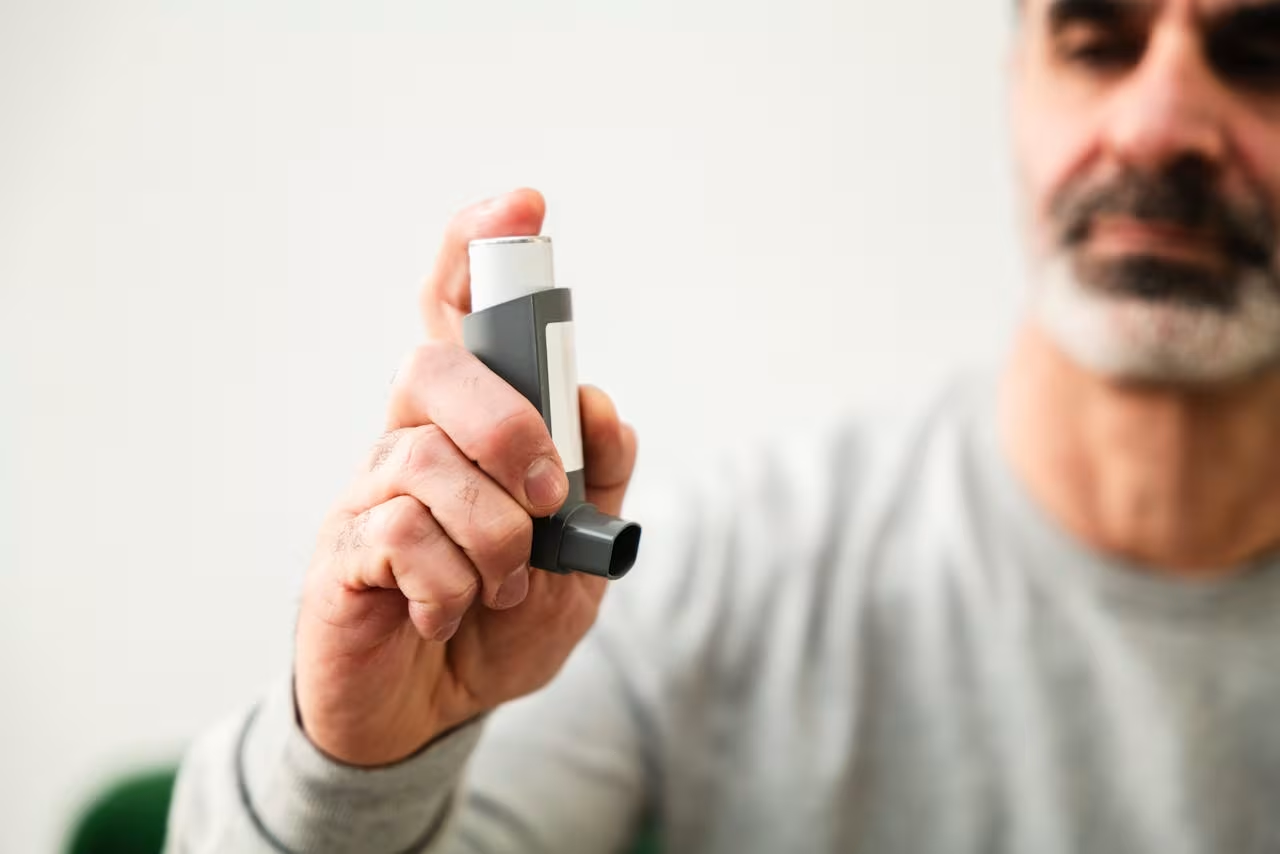
Asthma isn't just a childhood condition. Adult asthma is more common than most people realise. It can develop out of the blue and, if not managed properly, can be life-threatening. Whether you've had asthma since you were young or are experiencing symptoms for the first time in adulthood, this guide breaks down everything you need to know.
Adult asthma is a long-term condition where the airways become inflamed, narrow, and filled with mucus, making breathing difficult. While it can't be cured, it can be managed effectively with the right treatment and lifestyle changes.
You can develop asthma as an adult, even if you never had it as a child. This is called late-onset asthma, often presenting differently from childhood asthma. It's typically more persistent and less likely to go into remission.
The signs and symptoms of asthma in adults can range from mild to severe, and they often come and go. Common symptoms include:
Some adults experience what's known as a silent asthma attack, where there is no wheezing. This can be particularly dangerous because it's harder to detect. You might just feel extremely breathless or tired, or find it difficult to talk. If left untreated, silent attacks can quickly escalate into emergencies.
You might be wondering, "What causes asthma in adults?" There's no single answer, but several risk factors can increase your chances:
Many people don't realise that workplace exposure to substances like dust, fumes, or chemicals can trigger occupational asthma later in life.
Diagnosing asthma in adults isn't always straightforward. Symptoms can overlap with other conditions like COPD or allergies, and they often fluctuate over time.
Doctors use a combination of tools to confirm a diagnosis:
It might take a few weeks of monitoring and testing to confirm whether you have asthma or another breathing issue.
Book a private GP appointment for asthma testing
The main treatment for asthma is using inhalers that help open your airways or reduce inflammation. There are two common types:
Some people may be prescribed a combination inhaler (known as MART or AIR) that acts as both a preventer and reliever.
Inhalers are safe when used correctly, but they're designed for people with asthma. Using an inhaler without asthma won't provide any benefit and could even mask symptoms of other conditions.
Living with asthma doesn't mean giving up on your lifestyle. Here are some tips:
Check out our guide to allergy testing
Yes, many people develop asthma later in life. This is known as late-onset asthma, and it often requires long-term management.
Yes. You're more likely to develop asthma if you have a family history of asthma, eczema, or hay fever.
They include shortness of breath, fatigue, or chest tightness without wheezing. These can be dangerous if not recognised early.
If you don't have asthma, an inhaler is unlikely to help and could delay proper diagnosis or treatment of another condition.
Book a GP appointment. They'll assess your symptoms, do asthma testing, and help with diagnosis and treatment if needed.
Remember, early diagnosis and proper management can make a huge difference in your quality of life.
Asthma in adulthood can creep in quietly, but it doesn't have to disrupt your life. You can stay in control by recognising asthma symptoms in adults, knowing when to act, and working with your care team.
If you're unsure whether you have asthma or your symptoms aren't improving, speak to a GP. At Private Medical Clinic, we offer fast access to expert asthma diagnosis and treatment plans tailored to your needs.





